Delta Air Lines, Inc. (NYSE:DAL) - A Comprehensive Investment Analysis
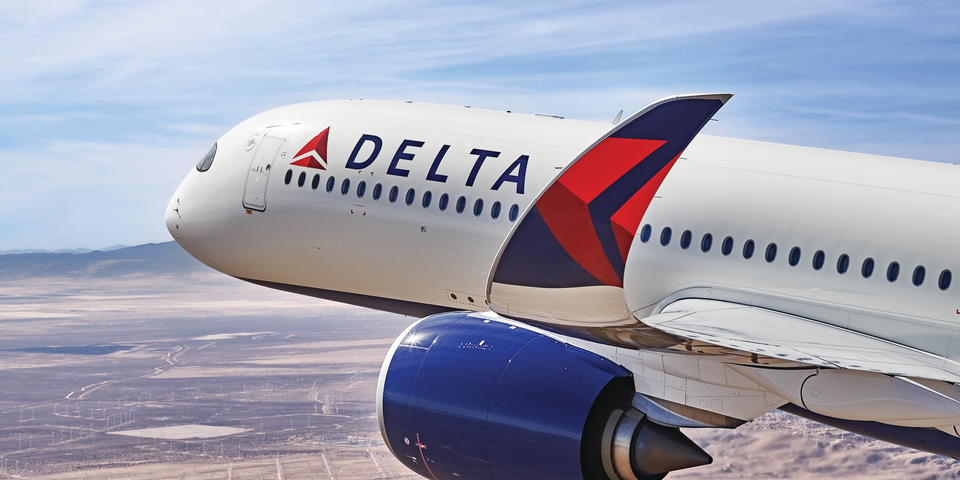
- Delta Air Lines, Inc. (NYSE:DAL) showcases a promising growth potential with a target price suggesting a 9.69% increase, backed by a robust market capitalization and an attractive P/E ratio.
- Compared to its competitors, Delta's financial health, characterized by a solid EPS and a reasonable dividend yield, positions it as a standout choice for investors in the airline industry.
- The airline's diversified ticket distribution channels and additional services like aircraft maintenance and vacation packages further enhance its competitive edge and investment appeal.
Delta Air Lines, Inc. (NYSE:DAL) stands as a significant player in the airline industry, with a history that stretches back to 1924. As an airline that offers both passenger and cargo transportation domestically and internationally, Delta has built a vast network centered around key hubs in the United States and extends to major international destinations. This strategic positioning allows Delta to cater to a wide range of customer needs, from business travel to cargo services, making it a versatile player in the market.
Financially, Delta presents an intriguing picture with a stock price of $42.49 and a target price suggesting a growth potential of 9.69%. This growth potential is underpinned by a solid market capitalization of $27.42 billion and a price-to-earnings (P/E) ratio of 5.58, which is relatively low compared to its peers. The earnings per share (EPS) of $6.97 further highlight Delta's profitability, and a dividend yield of 0.50% adds an additional layer of attraction for investors seeking income alongside capital growth.
When comparing Delta to its competitors, such as American Airlines Group Inc. (NASDAQ:AAL) and Southwest Airlines Co. (NYSE:LUV), Delta's financial health and growth potential stand out. American Airlines, despite having the highest growth potential among Delta's peers at 35.73%, struggles with a negative EPS, indicating current unprofitability. On the other hand, Southwest Airlines, known for its extensive fleet of Boeing 737 aircraft, has a much higher P/E ratio of 36.95 and a modest EPS of $0.13, suggesting a different investment profile characterized by higher valuation and lower earnings yield.
Delta's competitive edge is further solidified by its diversified ticket distribution channels, including direct sales through its website and mobile app, and traditional travel agencies. This multi-channel approach to sales, combined with additional services such as aircraft maintenance, vacation packages, and charter flights, positions Delta as a well-rounded choice for investors looking at the airline sector.
In conclusion, Delta Air Lines, Inc. offers a balanced investment opportunity with solid growth potential, reasonable valuation metrics, and a healthy dividend yield. Its strategic network and diversified services provide a strong foundation within the competitive airline industry landscape.
| Symbol | Price | %chg |
|---|---|---|
| LTM.SN | 21.1 | 0 |
| 003490.KS | 24150 | 0 |
| 003495.KS | 24400 | 0 |
| GIAA.JK | 68 | 0 |
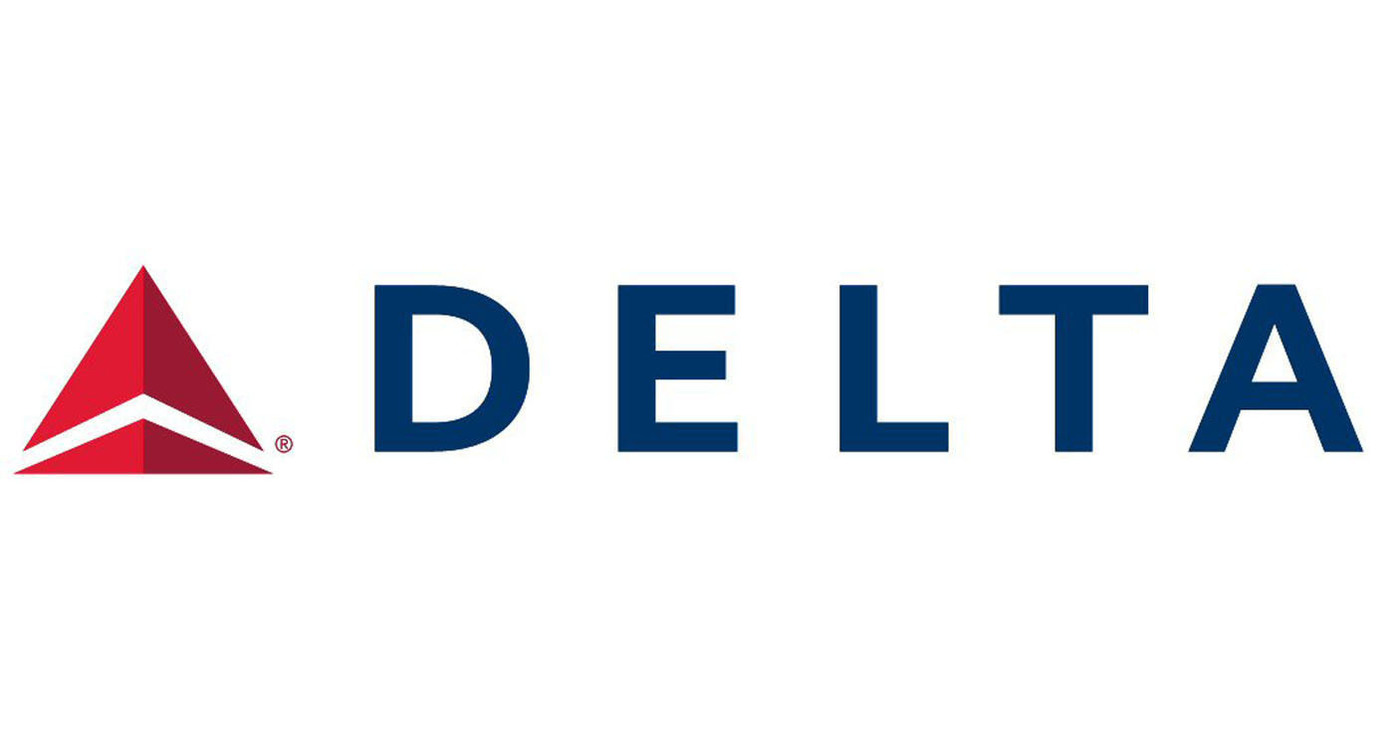
Delta Air Lines, Inc. (NYSE:DAL) Investment Activities Highlight Confidence and Market Dynamics
- Dave McCormick's significant transaction in Delta's corporate bonds valued between $250,001 and $500,000 suggests confidence in the company's financial stability.
- Peter Carter, Delta's Executive Vice President of External Affairs, sold 17,550 shares valued at approximately $1 million, yet maintains a significant ownership stake.
- Delta's stock price reflects market volatility with a current trading price of $51.15, indicating a decrease of approximately 3.87%.
Delta Air Lines, Inc. (NYSE:DAL) is a major American airline, providing air transportation for passengers and cargo across the globe. As one of the largest airlines in the world, Delta competes with other major carriers like American Airlines and United Airlines. The company is known for its extensive network, customer service, and operational efficiency.
On July 30, 2025, Dave McCormick engaged in a significant transaction involving Delta's corporate bonds, valued between $250,001 and $500,000. This transaction was disclosed on August 2, 2025. Corporate bonds are debt securities issued by a company to raise capital, and they typically offer fixed interest payments to investors. This transaction indicates McCormick's interest in Delta's debt instruments, which can be a sign of confidence in the company's financial stability.
In a related development, Peter Carter, Delta's Executive Vice President of External Affairs, sold 17,550 shares of the company on July 16, 2025. This sale was valued at approximately $1 million and conducted in an open market setting. The sale aligns with Carter's recent trading patterns, as his median trade size is around 17,747 shares. Despite this sale, Carter still holds 191,442 shares, valued at $10.8 million, maintaining a 0.03% ownership stake in the company.
Delta's stock is currently trading at $51.15 on the NYSE, reflecting a decrease of approximately 3.87% with a price drop of $2.06. The stock has fluctuated between a low of $50.45 and a high of $51.93 during the day. Over the past year, Delta's stock has seen a high of $69.98 and a low of $34.74, indicating significant volatility. The company's market capitalization stands at approximately $33.4 billion, with a trading volume of 9,531,575 shares for the day.
The sale of shares by Carter and the bond transaction by McCormick highlight different aspects of investment in Delta. While Carter's sale slightly reduces his ownership stake, McCormick's bond transaction suggests confidence in Delta's financial health. These activities occur against the backdrop of Delta's fluctuating stock price and market conditions, reflecting the dynamic nature of the airline industry.
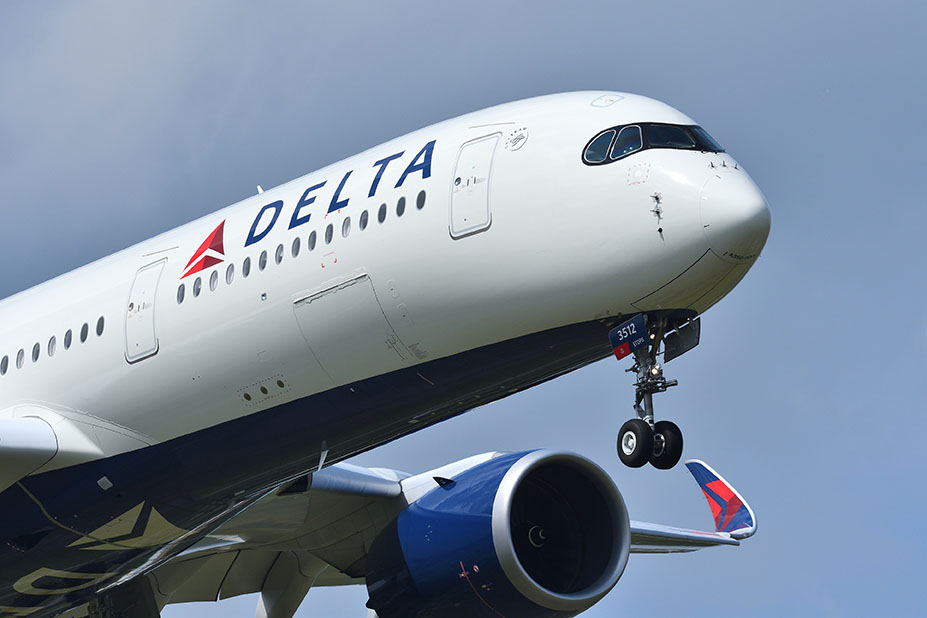
Delta Air Lines Financial Performance Analysis
- Earnings Per Share (EPS) of $2.10, surpassing the estimated $2.01.
- Revenue of $15.51 billion fell short of the expected $16.18 billion.
- Delta's stock surged by over 10% in premarket trading after reinstating its profit outlook for 2025.
Delta Air Lines, listed on the NYSE:DAL, is a major American airline known for its extensive domestic and international flight network. The company competes with other major airlines like American Airlines and United Airlines. On July 10, 2025, Delta reported its earnings, revealing an EPS of $2.10, surpassing the estimated $2.01. However, its revenue of $15.51 billion fell short of the expected $16.18 billion.
Despite the revenue miss, Delta's stock surged by over 10% in premarket trading, reaching a four-month high. This increase was driven by the company's decision to reinstate its profit outlook for 2025, as highlighted by CNBC's Phil LeBeau. The reinstatement of the full-year guidance boosted investor confidence, contributing to the positive movement in the stock price.
Delta's adjusted EPS of $2.10 exceeded analysts' expectations of $2.08, while revenue remained stable at $16.65 billion compared to the previous year. Analysts had anticipated revenue of $16.41 billion. In the previous quarter, Delta had forecasted a revenue change between a 2% decrease and a 2% increase, with adjusted EPS ranging from $1.70 to $2.30.
Looking ahead, Delta projects third-quarter revenue to be flat or increase by up to 4%, with adjusted EPS between $1.25 and $1.75. Analysts predict revenue to remain approximately flat at $15.69 billion, with adjusted EPS of $1.36. Delta's full-year projections expect adjusted EPS between $5.25 and $6.25, with the midpoint significantly exceeding the analysts' consensus of $5.31.
Delta's financial metrics provide insight into its market valuation. The P/E ratio is approximately 8.92, indicating the market's valuation of its earnings. The price-to-sales ratio stands at about 0.53, suggesting investors pay 53 cents for every dollar of sales. The debt-to-equity ratio is approximately 1.44, showing the proportion of debt used to finance the company's assets relative to equity.
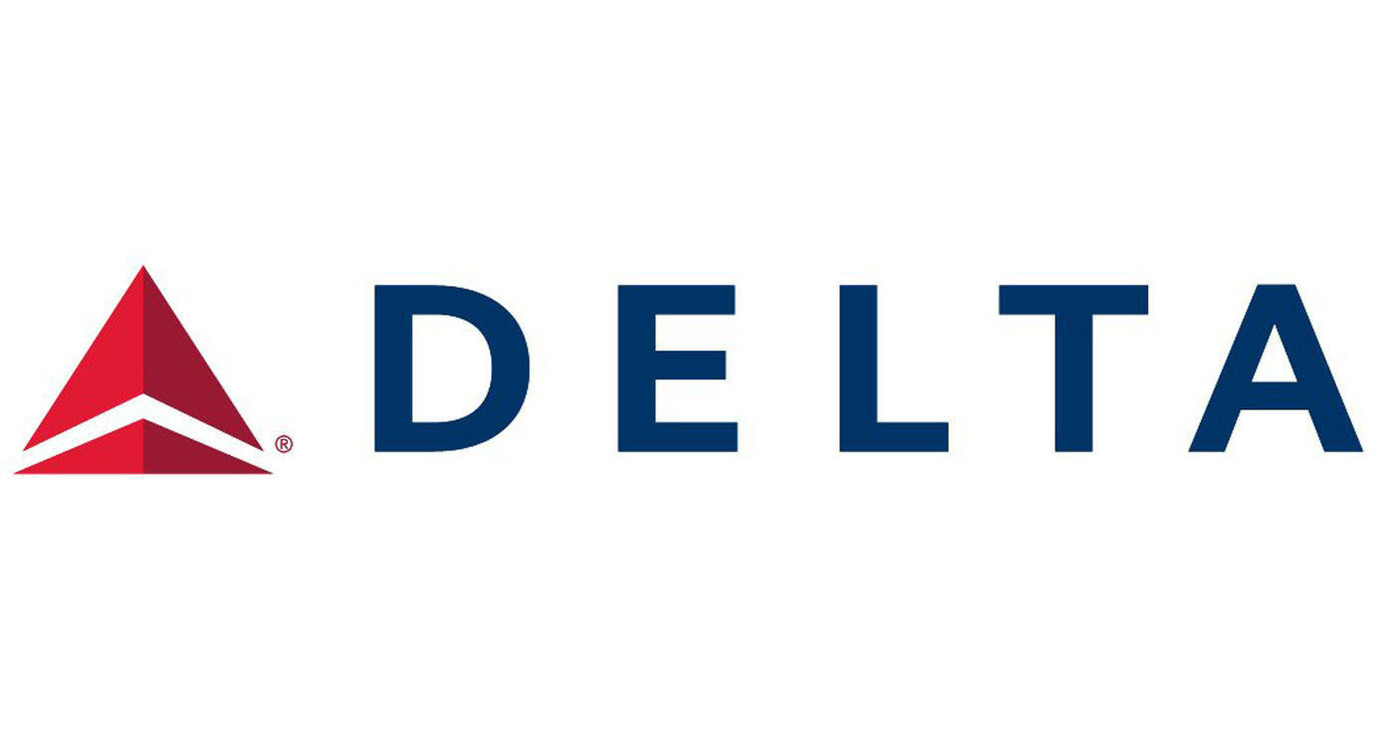
Delta Air Lines, Inc. (NYSE:DAL) Analysts Adjust Price Targets Amid Industry Challenges
- Analysts have lowered Delta Air Lines, Inc.'s (NYSE:DAL) consensus price target over the past year, indicating a more conservative outlook.
- Delta revised its 2025 profit outlook downwards, expecting adjusted earnings between $5.25 and $6.25 per share, impacting analysts' views.
- Macroeconomic factors and industry challenges, such as fluctuating fuel prices and changes in travel demand, contribute to the cautious price targets set by analysts.
Delta Air Lines, Inc. (NYSE:DAL) is a major player in the airline industry, providing air transportation services for passengers and cargo. The company operates a vast network of routes, serving domestic and international destinations. Delta competes with other major airlines like American Airlines and United Airlines. Recently, analysts have adjusted their price targets for Delta's stock, reflecting a more cautious outlook.
Over the past year, Delta's consensus price target has decreased. Last month, the average price target was $60, down from $63 last quarter and $67.21 last year. This trend suggests analysts are becoming more conservative in their expectations for Delta's stock. Factors such as earnings reports and industry trends likely contribute to this shift.
Delta's recent earnings reports have played a significant role in shaping analysts' views. The company revised its 2025 profit outlook, now expecting adjusted earnings between $5.25 and $6.25 per share, down from a previous forecast of over $7.35 per share. Despite this adjustment, Delta's CEO has indicated that demand has stabilized, as highlighted by CNBC.
Industry challenges, such as fluctuating fuel prices and changes in travel demand, also impact analysts' projections. Delta's financial results for the June quarter of 2025 align with earlier guidance, showing robust performance across diverse revenue streams. The company anticipates earnings per share for the September quarter to range between $1.25 and $1.75, with an operating margin of 9 to 11 percent, as reported by PR Newswire.
Macroeconomic factors, including interest rates and consumer spending, further influence Delta's stock price targets. Analyst Myles Walton from UBS has set a price target of $48 for Delta, reflecting a cautious stance amid potential industry headwinds. As Delta prepares to release its second-quarter earnings, investors and analysts are keen to see if the airline can maintain its earnings momentum.
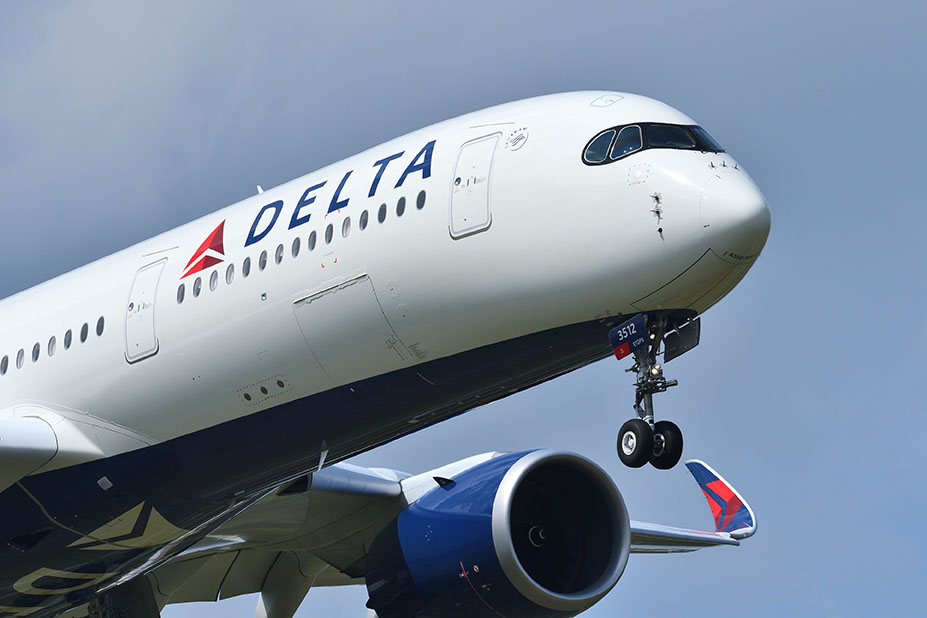
Delta Air Lines (NYSE: DAL) Quarterly Earnings Preview
- Delta Air Lines is expected to report an EPS of $1.92 and revenue of $16.16 billion for the upcoming quarter.
- The company has a history of exceeding earnings expectations, with an average earnings surprise of 10.06% over the past two quarters.
- Key financial ratios such as the P/E ratio of 8.82 and earnings yield of 11.34% highlight Delta's market valuation and financial efficiency.
Delta Air Lines (NYSE: DAL) is gearing up to unveil its quarterly earnings on July 10, 2025. Analysts are projecting an earnings per share (EPS) of $1.92 and revenue estimates stand at around $16.16 billion. As a leading entity in the airline sector, Delta is renowned for its steady performance and knack for surpassing earnings forecasts.
Delta boasts a robust track record of outperforming earnings projections, with an average earnings surprise of 10.06% over the preceding two quarters. In its most recent quarter, Delta was anticipated to post earnings of $0.46 per share but reported $0.4 per share, culminating in a 15% surprise. The quarter before that, the consensus estimate was $1.76 per share, and Delta outdid this with $1.85 per share, achieving a 5.11% surprise.
Examining Delta's financial indicators sheds light on its market valuation and operational performance. The company's price-to-earnings (P/E) ratio stands at approximately 8.82, illustrating the market's valuation of its earnings. Its price-to-sales ratio is pegged at about 0.53, indicating a relatively modest market valuation in comparison to its revenue. Furthermore, the enterprise value to sales ratio is around 0.83, reflecting the company's overall valuation against its sales figures.
Delta's financial efficiency is underscored by its enterprise value to operating cash flow ratio of roughly 6.42. This metric offers insights into the company's cash flow efficiency. With an earnings yield of 11.34%, Delta presents a significant return on its earnings relative to its share price. Nonetheless, the debt-to-equity ratio of about 1.44 signals the company's leverage level, and the current ratio of approximately 0.38 may indicate potential liquidity challenges.
Delta is set to host a live conference call and webcast to discuss its financial outcomes for the June quarter of 2025. This event is slated for 10 a.m. ET on July 10, 2025. Stakeholders can access the live webcast at ir.delta.com, with an online replay available shortly after the event's conclusion.
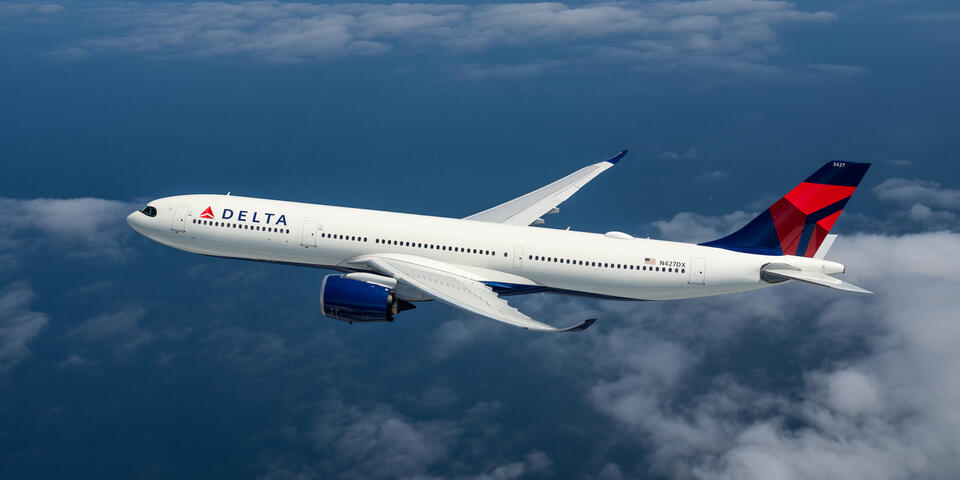
Delta Air Lines Announces Dividend Increase and Maintains Strong Market Presence
- Delta Air Lines (NYSE:DAL) raises its quarterly dividend by 25% to $0.1875 per share.
- Bernstein maintains an "Outperform" rating on Delta, with a price target adjustment from $61 to $60, indicating a potential increase of approximately 26.16%.
- Delta's operational excellence and commitment to shareholder value are underscored by its market capitalization of approximately $30.79 billion and a trading volume of 3.23 million shares.
Delta Air Lines (NYSE:DAL) has announced a 25% increase in its quarterly dividend, raising it to $0.1875 per share. This dividend will be distributed to shareholders on record by July 31, 2025, with payment scheduled for August 21, 2025. Delta is renowned for its exceptional service and innovation, operating up to 5,000 flights daily and connecting over 290 destinations across six continents.
In 2024, Delta served over 200 million customers and was recognized by J.D. Power for leading in First/Business and Premium Economy Passenger Satisfaction. The airline was also acknowledged as North America's most on-time airline and received the Platinum Award for Operational Excellence from Cirium. Delta remains committed to providing a connected, personalized, and enjoyable travel experience.
On June 18, 2025, Bernstein maintained its "Outperform" grade for Delta, with the stock priced at $47.56. Bernstein adjusted the price target for Delta, lowering it from $61 to $60. Despite this adjustment, the new target still suggests a potential price increase of approximately 26.16% from the current price.
Delta's stock is currently trading at $47.16 on the NYSE, experiencing a slight decrease of 0.85%, with a change of $0.41. The stock has fluctuated between a low of $47.13 and a high of $48.19 today. Over the past year, it reached a high of $69.98 and a low of $34.74, with a market capitalization of approximately $30.79 billion.
Delta's trading volume stands at 3.23 million shares. The company's strong market presence and operational excellence continue to attract investor interest, as highlighted by Bernstein's positive outlook. Delta's commitment to enhancing shareholder value through dividend increases further solidifies its position in the competitive airline industry.
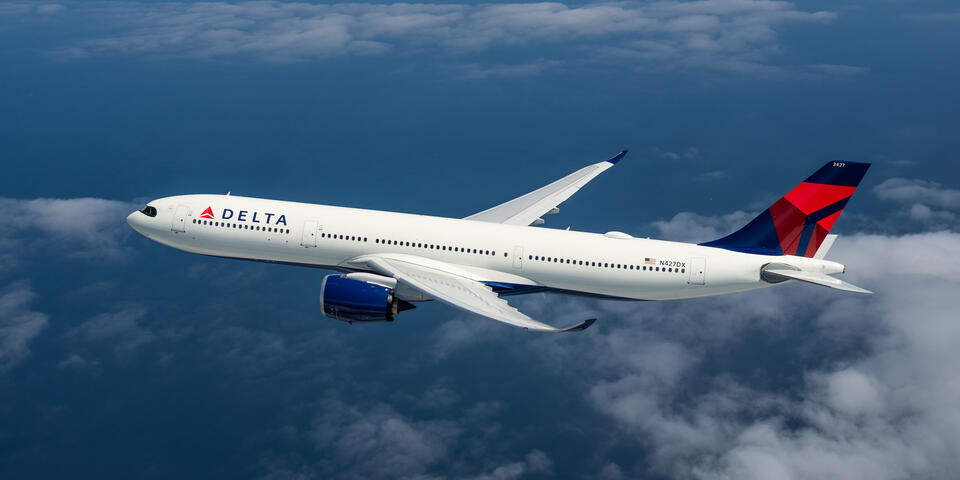
Delta Air Lines' Financial Performance and Market Position
- Earnings Per Share (EPS) of $0.46, surpassing estimates and indicating operational efficiency.
- Revenue reached approximately $12.98 billion, slightly above expectations, showcasing strong demand and cost management.
- Despite solid financials, concerns over liquidity and a decline in stock price highlight areas for investor caution.
Delta Air Lines, trading as NYSE:DAL, is a major American airline headquartered in Atlanta, Georgia. It operates an extensive domestic and international network, serving over 300 destinations in more than 50 countries. Delta competes with other major airlines like American Airlines and United Airlines. The company is known for its focus on customer service and operational efficiency.
On April 9, 2025, Delta reported earnings per share (EPS) of $0.46, surpassing the estimated $0.38. This performance also exceeded the Zacks Consensus Estimate of $0.40 per share, marking a slight increase from the $0.45 per share reported in the same quarter last year. Despite this, the stock price declined by 3.77%, as highlighted by the company's failure to meet its own guidance of $0.70 to $1.00 per share.
Delta's revenue for the quarter was approximately $12.98 billion, slightly above the estimated $12.97 billion. The company attributes its solid revenue and strong cost performance to its profitability, which remains comparable to the previous year. Delta is projecting an operating margin of 11% to 14% for the June quarter, with expected EPS ranging from $1.70 to $2.30.
The airline's financial metrics reveal a relatively low valuation, with a price-to-earnings (P/E) ratio of 6.79 and a price-to-sales ratio of 0.38. This suggests that investors are paying 38 cents for every dollar of sales. Delta's enterprise value to sales ratio is 0.60, and its enterprise value to operating cash flow ratio is 4.62, indicating a strong ability to cover its enterprise value with operating cash flow.
Delta's debt-to-equity ratio is 1.11, reflecting moderate debt usage. However, the current ratio of 0.37 may indicate potential liquidity concerns in meeting short-term obligations. Despite these challenges, Delta offers an earnings yield of 14.72%, providing a substantial return on investment relative to its share price.

Delta Air Lines' Financial Performance and Market Position
- Earnings Per Share (EPS) of $0.46, surpassing estimates and indicating operational efficiency.
- Revenue reached approximately $12.98 billion, slightly above expectations, showcasing strong demand and cost management.
- Despite solid financials, concerns over liquidity and a decline in stock price highlight areas for investor caution.
Delta Air Lines, trading as NYSE:DAL, is a major American airline headquartered in Atlanta, Georgia. It operates an extensive domestic and international network, serving over 300 destinations in more than 50 countries. Delta competes with other major airlines like American Airlines and United Airlines. The company is known for its focus on customer service and operational efficiency.
On April 9, 2025, Delta reported earnings per share (EPS) of $0.46, surpassing the estimated $0.38. This performance also exceeded the Zacks Consensus Estimate of $0.40 per share, marking a slight increase from the $0.45 per share reported in the same quarter last year. Despite this, the stock price declined by 3.77%, as highlighted by the company's failure to meet its own guidance of $0.70 to $1.00 per share.
Delta's revenue for the quarter was approximately $12.98 billion, slightly above the estimated $12.97 billion. The company attributes its solid revenue and strong cost performance to its profitability, which remains comparable to the previous year. Delta is projecting an operating margin of 11% to 14% for the June quarter, with expected EPS ranging from $1.70 to $2.30.
The airline's financial metrics reveal a relatively low valuation, with a price-to-earnings (P/E) ratio of 6.79 and a price-to-sales ratio of 0.38. This suggests that investors are paying 38 cents for every dollar of sales. Delta's enterprise value to sales ratio is 0.60, and its enterprise value to operating cash flow ratio is 4.62, indicating a strong ability to cover its enterprise value with operating cash flow.
Delta's debt-to-equity ratio is 1.11, reflecting moderate debt usage. However, the current ratio of 0.37 may indicate potential liquidity concerns in meeting short-term obligations. Despite these challenges, Delta offers an earnings yield of 14.72%, providing a substantial return on investment relative to its share price.







